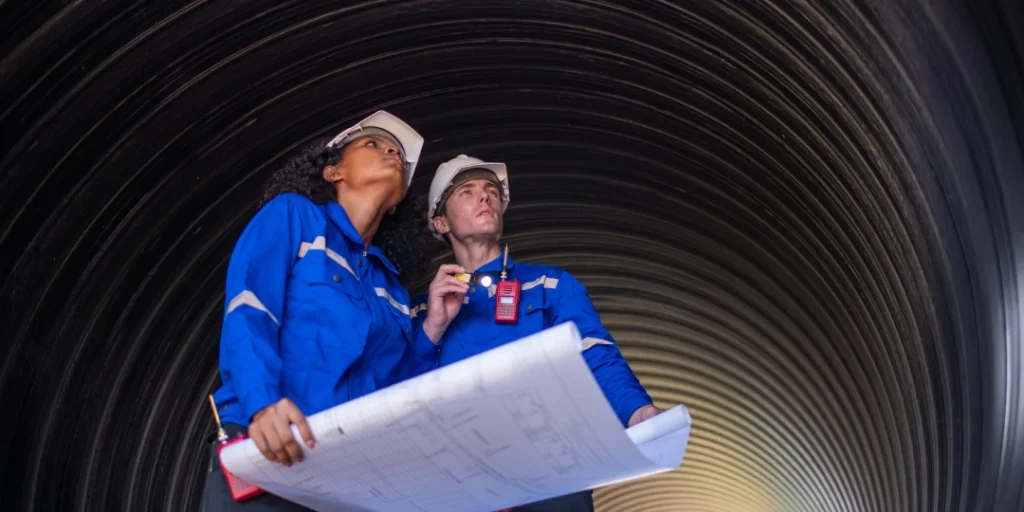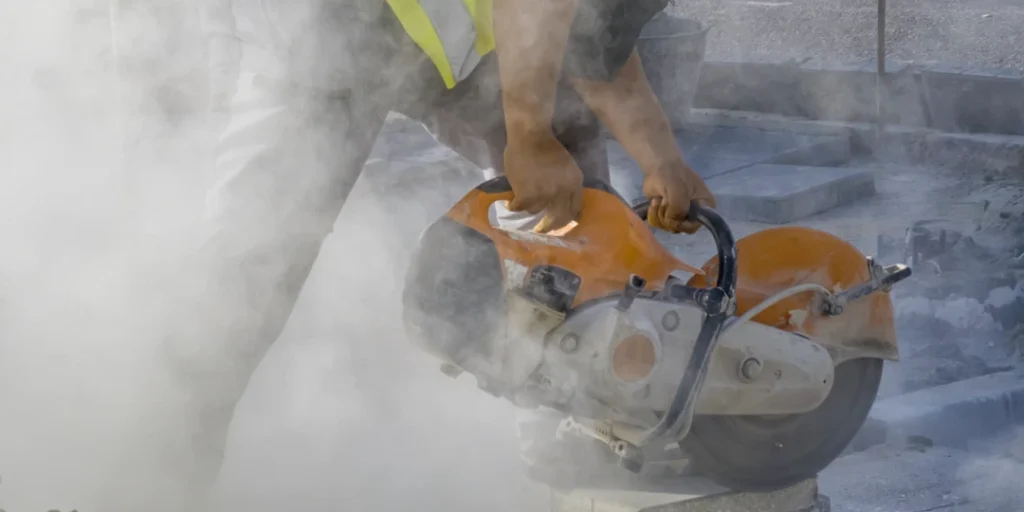Introduction: The High-Stakes Role of Flagging in Nashville
In Nashville’s fast-evolving landscape, where road construction, infrastructure expansion, and urban development are accelerating daily, flagging has become one of the most critical components of jobsite safety. Road crews, utility teams, and contractors across the city depend on skilled flaggers to manage the movement of vehicles and pedestrians while protecting workers operating just inches from live traffic.
Flagging is not a secondary role—it is the frontline of safety. It ensures that traffic flows in a controlled manner, prevents accidents, and provides essential coordination between workers and the public. In many scenarios, a flagger may be the only line of defense between distracted drivers and high-risk construction activity.
At Fortier Loss Control, we approach flagging with the seriousness it demands. We understand that effective flagging is more than holding a paddle or wearing a vest—it’s about vigilance, communication, quick thinking, and strict adherence to safety standards. That’s why our Nashville-based flagging programs are designed with a deep understanding of Tennessee worksite challenges and regulatory requirements.
This guide explores the key aspects of flagging safety, compliance, and training in Middle Tennessee—and why Fortier Loss Control’s customized flagging solutions are trusted by contractors and municipalities throughout the region.
Understanding the Function of Flagging on Tennessee Worksites
Flagging plays a foundational role in ensuring the safety and success of construction, utility, and roadside projects throughout Tennessee. It is far more than traffic control—flagging is a dynamic safety operation that requires sharp judgment, environmental awareness, and strong communication skills.
Flaggers are responsible for implementing and executing safe flagging procedures that align with project plans and regulatory guidelines. Their responsibilities include:
-
Controlling the flow of traffic and pedestrians through and around active work zones
-
Initiating communication with crew leaders, equipment operators, and fellow flaggers
-
Responding to changing site conditions, such as vehicle congestion, weather changes, or emergency situations
-
Maintaining visibility and authority to direct drivers safely
-
Enforcing restricted access to protect both workers and motorists
In both urban and rural areas of Nashville, flagging often involves unpredictable and high-stress environments. From directing heavy traffic on downtown roadways to managing single-lane closures on winding rural roads, flaggers must remain calm, alert, and assertive at all times.
Improper flagging—or no flagging at all—can lead to confusion, bottlenecks, collisions, or even fatal incidents. For this reason, flagging must be executed with professionalism and supported by formal training that meets local, state, and federal guidelines.
Fortier Loss Control delivers comprehensive, real-world flagging instruction tailored to the Nashville area. Our programs ensure that every team member involved in flagging is equipped with:
-
MUTCD-compliant techniques
-
OSHA/TOSHA-aligned safety protocols
-
Hands-on flagging drills for real-world application
-
The confidence to make quick decisions under pressure
By making flagging a true safety priority—not an afterthought—we help protect lives, maintain jobsite efficiency, and ensure full regulatory compliance.
Common Roadside Hazards Faced in Flagging Across Urban and Rural Nashville
Flagging on Tennessee worksites comes with inherent risks, and in a fast-growing city like Nashville, those risks vary greatly depending on location. In urban environments, flagging crews are often surrounded by high volumes of vehicle traffic, frequent distractions, and confined spaces. These sites demand enhanced situational awareness and quick, decisive action to maintain control and avoid accidents. Flaggers must remain alert at all times, constantly monitoring drivers, pedestrians, and construction equipment operating nearby.
In Nashville’s rural and suburban areas, flagging operations come with a different set of hazards. Long, winding roads, limited lighting, and high-speed traffic create conditions where visibility and response time are critical. A distracted driver cresting a hill or rounding a bend can become a threat in seconds if proper signage and flagging protocols aren’t in place. Rural sites may also lack backup crews or quick access to emergency services, making preparedness and communication even more essential.
Regardless of setting, all flaggers in Middle Tennessee face overlapping challenges that put them at risk. Prolonged exposure to extreme heat or cold, fatigue from standing on hard surfaces, and the physical demands of maintaining posture and visibility for hours can impact performance. Add in sudden lane changes, impaired drivers, and fast-moving construction vehicles, and the importance of comprehensive flagging safety becomes clear.
Fortier Loss Control understands these site-specific dynamics and provides flagging safety programs designed to address them. Our training goes beyond theory, giving Nashville-area flaggers the tools to identify hazards early, adjust flagging techniques accordingly, and use PPE and communication devices effectively. Whether working in a downtown corridor or a remote highway project, flagging professionals trained by Fortier are better equipped to manage risks and protect everyone on the jobsite.

Why Proper Flagging Is Essential for DOT, OSHA, and TOSHA Compliance
Flagging isn’t just a matter of safety—it’s a legal requirement. In Tennessee, roadside operations fall under the jurisdiction of multiple regulatory bodies, including OSHA, TOSHA, TDOT, and the federal MUTCD. These agencies have established clear standards for signage, flagger positioning, personal protective equipment, and operational procedures. Non-compliance with any of these rules can result in citations, project shutdowns, or far worse—preventable injuries or fatalities.
Nashville crews must be especially vigilant about meeting these regulatory standards due to the city’s heavy traffic volumes and growing number of road projects. Proper flagging ensures that drivers receive clear instructions, construction crews remain protected, and the work progresses without unnecessary disruption. When operations are poorly executed or undocumented, the legal and financial risks to contractors and municipalities escalate rapidly.
Fines from OSHA or TOSHA violations can reach thousands of dollars per incident, and legal action following a roadside accident can severely damage a company’s reputation. Improper flagging may also void insurance coverage or disqualify contractors from future bidding opportunities. For these reasons, consistent, well-documented compliance is essential—not just for worker safety, but for operational sustainability.
Fortier Loss Control works closely with clients throughout Middle Tennessee to ensure that the procedures are legally sound and fully aligned with DOT, OSHA, and TOSHA standards. We help employers document their compliance strategies, train their flaggers to certification, and create internal systems that reduce liability. With Fortier’s guidance, Nashville-based crews can approach every project knowing their flagging operations are both safe and legally defensible.
Required Flagging Training: What Nashville Crews Must Know
Flagging may seem straightforward, but in practice, it’s a nuanced and demanding task that requires extensive training. In Tennessee, every flagger must be trained and certified according to MUTCD, OSHA, and TDOT guidelines. Training must cover both theoretical concepts and real-world scenarios, ensuring that flaggers can adapt quickly to changing jobsite conditions. Without this foundation, even the most experienced workers are vulnerable to making costly or dangerous mistakes.
A strong training program includes instruction on proper hand signals, stop/slow paddle use, equipment positioning, and emergency response protocols. Nashville-based crews also need to understand how to handle site-specific challenges—like heavy commuter traffic, unpredictable weather, or complex detour systems. At Fortier Loss Control, we emphasize critical thinking and decision-making, not just rote memorization. Our trainees leave the classroom ready to apply flagging skills in high-stakes environments.
In addition to operational techniques, effective training must include modules on situational awareness and hazard recognition. Flaggers must be able to identify threats before they materialize, whether it’s a distracted driver weaving toward the work zone or a malfunctioning signal board that needs immediate replacement. We also train flaggers in clear communication, both verbal and non-verbal, which is essential when coordinating with equipment operators, pedestrians, and law enforcement.
Fortier Loss Control’s certified programs are trusted by construction firms, utility contractors, and municipalities across Nashville and the greater Middle Tennessee region. We offer both initial and refresher training, accommodating teams of all experience levels. Each program includes documentation and hands-on assessments to ensure every flagger meets compliance standards and is truly prepared for the demands of the road. Our goal is not just to certify flaggers—but to develop confident, competent professionals capable of leading safe, efficient flagging operations.
Equipment and PPE Standards for Flaggers in Tennessee
Proper equipment is vital to effective and compliant flagging. In Tennessee, flaggers are required to wear and use specific personal protective equipment (PPE) that enhances visibility, ensures communication, and reduces exposure to hazards. These standards are not just best practices—they are mandated by OSHA, TOSHA, and TDOT to protect workers positioned in active roadways. When crews neglect to equip their flaggers correctly, they jeopardize both safety and regulatory compliance.
Flagging PPE begins with high-visibility apparel. All flaggers must wear ANSI/ISEA 107 Class 2 or Class 3 garments, depending on the jobsite conditions. Bright orange or fluorescent yellow-green safety vests with reflective striping are mandatory and must be clean, undamaged, and clearly visible from all directions. Additional layers, such as rain gear or jackets, must also meet high-visibility standards to avoid obscuring the reflective surface during inclement weather.
Beyond apparel, proper flagging equipment includes stop/slow paddles, two-way radios for coordination, hard hats, protective gloves, and steel-toe boots. Depending on the site, additional tools such as whistles, horns, and traffic cones may be used to reinforce direction and alertness. In high-noise areas, flaggers may also require hearing protection that does not impair awareness. Each tool used in a flagging operation must be maintained in working order and easily accessible throughout the shift.
At Fortier Loss Control, we help employers in the Nashville area evaluate and upgrade their flagging equipment to meet or exceed state and federal safety guidelines. Our safety assessments identify gaps in PPE usage, recommend reliable suppliers, and train workers on how to properly wear and maintain their gear. By standardizing equipment and ensuring consistent use across flagging teams, we reduce the risk of injury and strengthen overall site compliance.
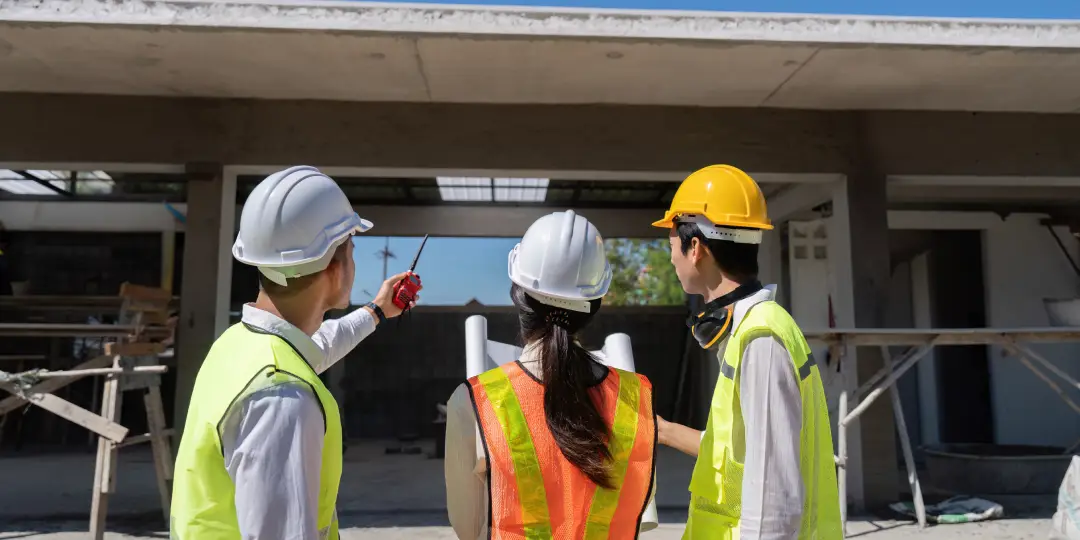
Communication Techniques That Improve Flagging Effectiveness
Effective communication is at the heart of successful flagging operations. Whether managing traffic flow, coordinating with fellow workers, or signaling to motorists, flaggers must use clear and consistent communication methods at all times. In chaotic or high-traffic work zones, a single misinterpreted gesture or missed cue can lead to confusion—or worse, a serious accident. That’s why every flagger needs to be fluent in both verbal and non-verbal communication strategies.
Flaggers rely heavily on standardized hand signals, stop/slow paddles, and body positioning to guide drivers through work zones. These signals must be crisp, deliberate, and easily understood even from a distance. A flagger’s stance, movements, and eye contact all convey authority and direction. When properly trained, flaggers can control traffic intuitively—without shouting or stepping dangerously into the roadway.
Two-way radios and other communication devices are equally important for flagging teams working on large or multi-zone projects. Radios allow flaggers to communicate with supervisors, equipment operators, and other flaggers stationed down the line. This real-time coordination is essential when managing one-lane traffic patterns, responding to emergencies, or adjusting for last-minute changes in traffic flow. Clear, direct radio protocol ensures that instructions are followed without delay or misunderstanding.
Fortier Loss Control’s training includes dedicated instruction on communication best practices, with scenario-based exercises to reinforce those skills in real-world conditions. We teach flaggers how to adapt their signaling based on lighting, distance, and site layout, and how to remain calm and authoritative in the face of aggressive or confused drivers. By empowering flaggers with strong communication tools, we help ensure that every jobsite runs safely, efficiently, and in full compliance with Nashville’s demanding roadway conditions.
Flagging in High-Traffic Zones: Strategies to Manage Risk
High-traffic areas in Nashville—such as interstates, downtown corridors, and arterial roadways—present some of the most complex and hazardous conditions for flagging operations. In these environments, flaggers are exposed to heavy traffic volumes, impatient or distracted drivers, and limited buffer space between work areas and moving vehicles. Successfully managing risk in these locations requires advanced planning, proper setup, and skilled execution.
One of the most effective strategies for safe flagging in high-traffic zones is the use of buffer zones and clearly marked transitions. Setting up appropriate signage well ahead of the work zone helps motorists slow down and understand what’s coming. Portable message boards, cones, and arrow panels should guide vehicles into the correct lanes before they reach the flagger’s station. Advance warning gives drivers more time to react and reduces the likelihood of abrupt lane changes near crews.
In these high-stress environments, flagger fatigue becomes a real concern. Long hours of maintaining posture and alertness amid constant noise and traffic can lead to decreased performance. Rotating flaggers more frequently—particularly during peak traffic periods—helps maintain high levels of attention and reduces the risk of error. Assigning spotters or supervisors to assist with traffic monitoring is another effective way to provide support during complex or extended flagging assignments.
At Fortier Loss Control, our trainers work directly with field supervisors to develop site-specific flagging plans for high-risk areas across Nashville. We assess traffic patterns, visibility challenges, and environmental risks to determine the best practices for lane closures, signage placement, and personnel rotation. With a strategic approach to flagging in high-traffic zones, crews can keep projects on track while significantly reducing the likelihood of accidents or public complaints.
Fortier Loss Control’s Flagging Safety Programs and Onsite Training
At the core of Fortier Loss Control’s mission is a commitment to practical, effective, and regulation-compliant flagging training. We understand that real safety doesn’t come from a generic training video—it comes from personalized instruction that reflects the challenges of the jobsite. That’s why we offer comprehensive flagging safety programs designed specifically for construction and utility teams working throughout Middle Tennessee.
Our programs combine classroom instruction, field demonstrations, and hands-on practice. Flaggers are trained in accordance with MUTCD standards and Tennessee-specific guidelines, ensuring they’re not just compliant—but prepared to perform under pressure. We cover everything from traffic control principles and hazard recognition to emergency response procedures and effective communication techniques. Each training session is led by experienced instructors who understand the realities of roadside work.
In addition to initial certification courses, we also provide refresher training for experienced flaggers. These sessions help reinforce safe habits, introduce updates to regulatory requirements, and address site-specific challenges crews may encounter. Fortier Loss Control also offers onsite evaluations and coaching, where our safety experts observe flagging operations in real-time and provide constructive feedback to improve performance and coordination.
What truly sets our flagging programs apart is their adaptability. We customize training to match the scope, duration, and risk level of your specific projects—whether you’re managing a weeklong utility dig on a quiet street or a multi-phase highway resurfacing job. By bringing flexible, expert-led training to the field, Fortier Loss Control empowers Nashville-area teams to execute flagging operations that are safe, consistent, and legally sound—no matter the complexity of the worksite.
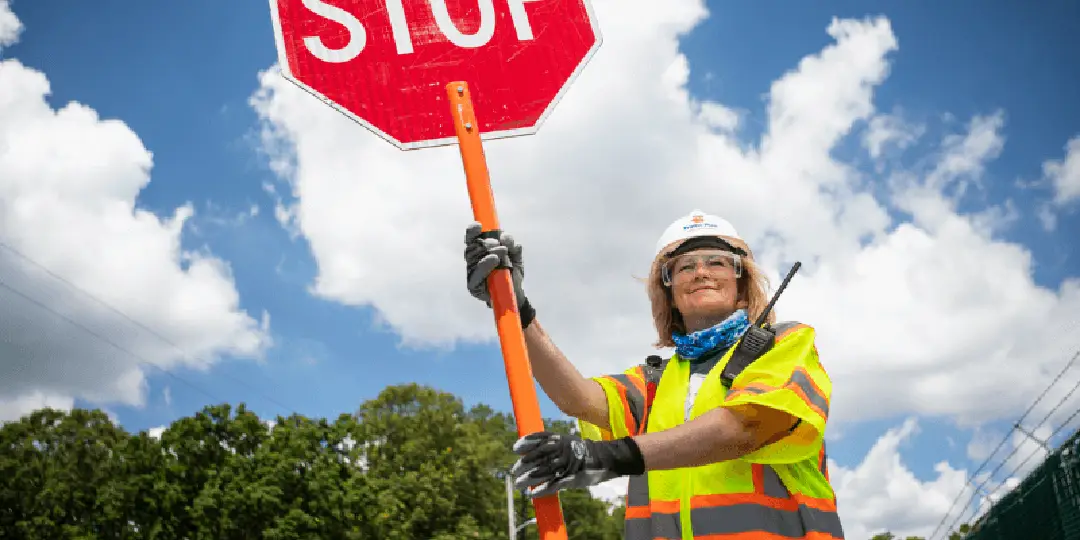
Frequently Asked Questions
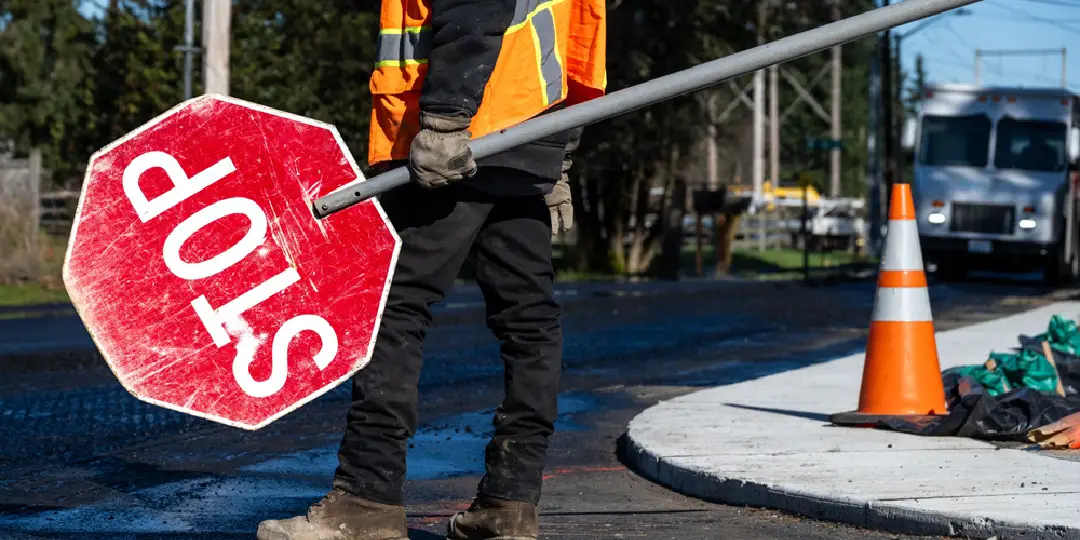
Conclusion: Partnering with Fortier Loss Control to Keep Nashville’s Roads Safer
Flagging is far more than a routine task—it is a critical function that protects workers, drivers, and pedestrians alike. In a high-growth region like Nashville, where construction, roadwork, and infrastructure upgrades are constant, the demands on flagging crews are greater than ever. With so many variables at play—ranging from high-speed traffic to unpredictable site conditions—investing in proper flagging practices isn’t optional. It’s essential for safety, efficiency, and compliance.
At Fortier Loss Control, we believe that every flagging operation deserves the same level of strategic planning and training as any other high-risk jobsite activity. Our programs are designed to help crews understand not only the mechanics of flagging, but also the mindset and vigilance it requires. When flaggers are confident, well-equipped, and fully trained, they become leaders on the jobsite—setting the tone for safety and professionalism across the entire crew.
By partnering with Fortier, contractors and municipalities throughout Middle Tennessee gain access to a team of safety experts who specialize in flagging and traffic control. From tailored training and certification to onsite safety audits and regulatory support, we deliver comprehensive solutions that meet the unique needs of Nashville’s work environments. Our clients know that with Fortier, they’re getting more than training—they’re getting a partner who is fully invested in keeping their people safe.
If your team is preparing for a new project or simply looking to improve your current flagging operations, there’s no better time to raise the standard. Reach out to Fortier Loss Control today to schedule a flagging training session, request a site assessment, or learn more about our customized safety solutions. Together, we can create safer worksites, protect more lives, and keep Nashville moving forward—one safe flagging zone at a time.

